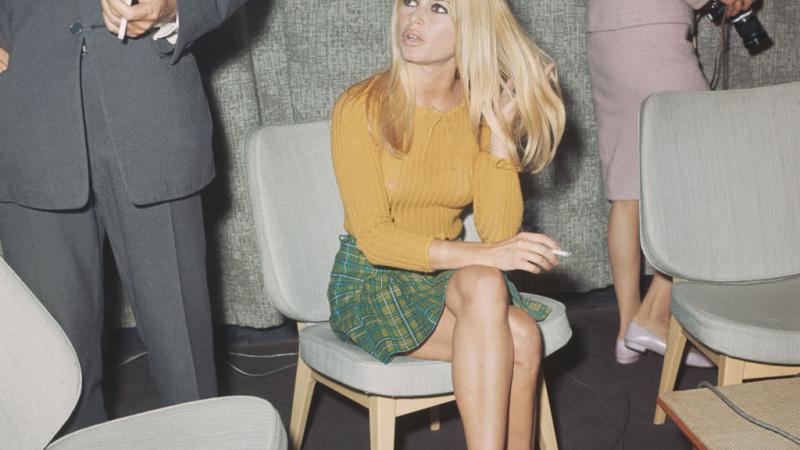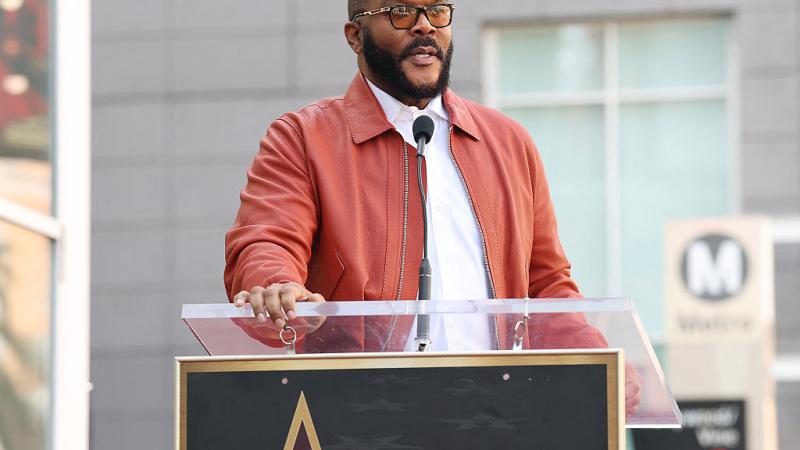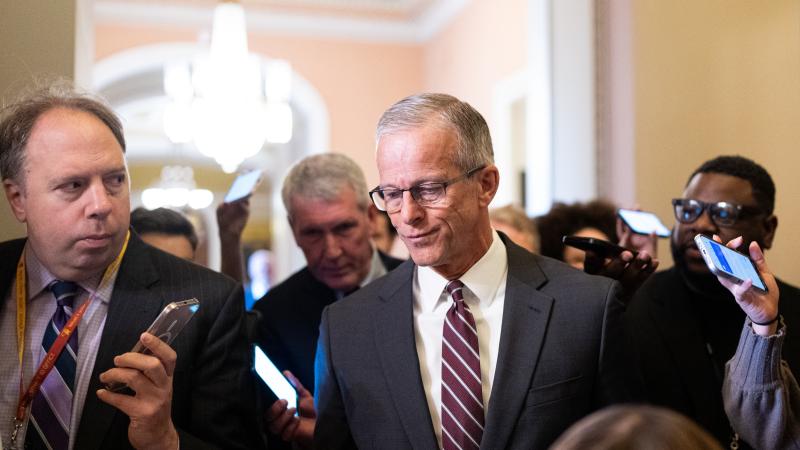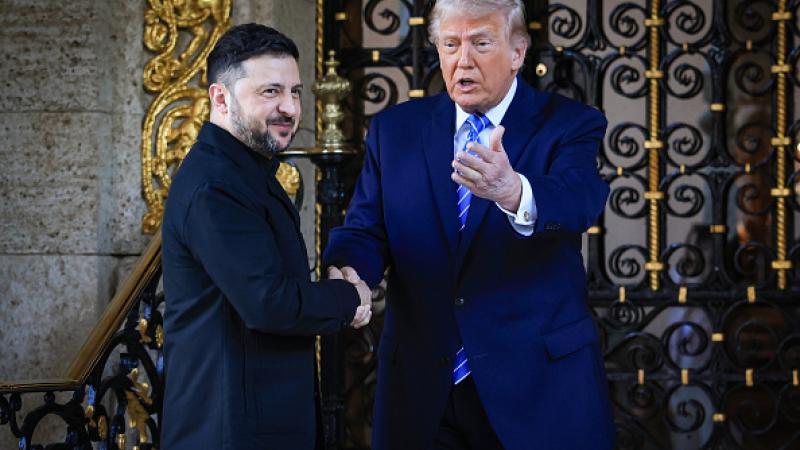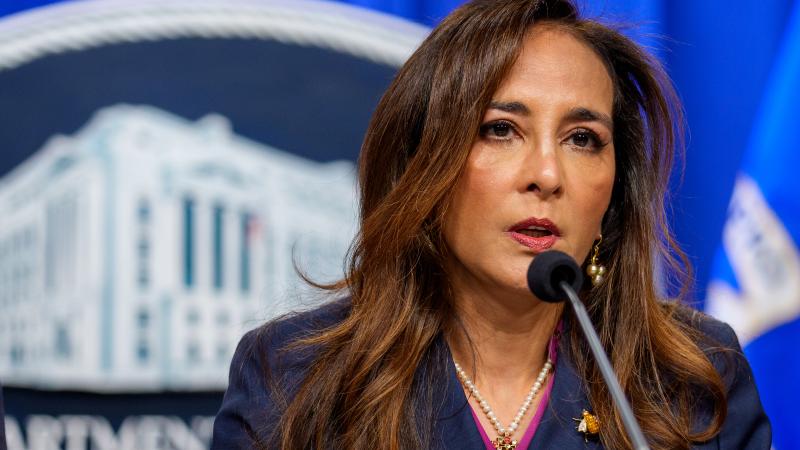Hollywood, media #MeToo mantra: Do as we say, not as we did
The glamour professions' moral 'compensation effect'
Another week, another round of #MeToo headlines: lurid details of sexual exploitation and head-spinning falls from professional grace.
As so often in the past, the latest episodes occurred within the creative enclaves concentrated in the Hollywood entertainment and Acela Corridor media complexes.
A question is increasingly hard to avoid: Is #MeToo more of a problem in the bicoastal creative elite than on Main Street?
Late last month disgraced movie mogul Harvey Weinstein was belatedly brought to justice for decades of unconstrained predation.
More recently, MSNBC's Chris Matthews abruptly retired after 20 years hosting “Hardball” amid allegations from journalist Laura Bassett in GQ magazine that the pundit “inappropriately flirted” with her before a 2016 appearance on the show.
Matthews signed off his final broadcast March 2 with an emotional mea culpa.
"Compliments on a woman’s appearance that some men, including me, might have once incorrectly thought were OK, were never OK,” he said. ”Not then and certainly not today. And for making such comments in the past, I’m sorry."
And Grammy Awards chief Deborah Dugan lost her job the same day amid a bizarre, he-said-she-said volley of allegations. The Recording Academy (the institutional home of the awards) cited “management deficiencies and failures,” according to the AP, without sharing more specific examples.
Dugan claimed an Academy lawyer had sexually harassed her. Previously, she called out the music industry’s imbalance favoring powerful male figures.
The most prominent folks to fall under the #MeToo movement’s sword consistently seem to hail preponderantly from the coastal glamour professions where fame, power, beauty, and money meet. Think figures like Charlie Rose, Les Moonves, Russell Simmons, Matt Lauer, and former Sen. Al Franken.
Yet that doesn’t stop these communities from lecturing the rest of the country, be it from an Oscars stage or in a stream of outraged op-eds.
Coastal crowds may be influenced by the “compensation effect,” suggests Jim Geraghty, senior political correspondent for National Review, the “idea that if we do enough good things, we can excuse the bad things that we do, or the times we don’t live up to our own moral values.”
Geraghty cites Weinstein’s initial reaction to the 2017 Ronan Farrow New Yorker expose on his deeds as a prime example. The mogul vowed to savage the NRA if let off the hook for his sexual misconduct, as if the former could atone for the latter and bring his moral account book back into balance.
Geraghty anecdotally sees a similar problem in higher education.
“I have friends in academia who describe abominably sexist comments and behavior among their colleagues,” he says. “I do wonder if progressives are particularly susceptible to the compensation effect — believing that because they vote the right way and hold all the ‘right’ beliefs they’re entitled to treat particular people badly.”
That doesn’t mean, he cautions, that the Weinsteins of the world are confined to one ideological camp rather than another.
While “it’s tempting for conservatives to believe that sexual harassment and predatory behavior are mostly a phenomenon of the Left,” he says, he cites abuse horror stories coming from more traditional institutions in American life, like the Catholic Church, the Boy Scouts and police departments.
Abuse is a “human problem, not an ideological problem,” Geraghty stresses.
Of course, one cannot simply lay a blanket, unnuanced charge of hypocrisy about #MeToo at the collective feet of Hollywood. After all, the offenders and the preachifying celebrity activists are separate groups of people, with little overlap between them. That said, however, there certainly was a broader group of what might be called passive enablers, from Tinsel Town creatives to mainstream media scribes, who didn’t do enough to stop the Weinsteins in their midst.
Farrow and his former NBC producer Rich McHugh say that NBC spiked Farrow’s reporting about Weinstein’s sexual misconduct in part to prevent Weinstein from retaliating by publicly airing what he knew about misconduct allegations against the network’s morning host (and news division meal ticket) Matt Lauer.
McHugh told the New York Times that NBC executives ordered Farrow and him not to interview a woman with a “credible rape accusation” against Weinstein. “I was ordered to stop, not to interview this woman,” McHugh said. “And to stand down on the story altogether.”
(NBC has vehemently denied that it tried to kill Farrow’s reporting as an “outright lie” and says it never knew about Lauer’s misconduct until 24 hours before he was fired by the network.)
Weinstein’s recent guilty verdict found veteran Hollywood journalist Kim Masters telling a BBC reporter she cornered Weinstein 20 years ago.
“I said, ‘I’ve heard you rape women,’ and he didn’t exactly deny it,” Masters told the interviewer, an exchange she shared on her Twitter account.
That feeds directly into complaints that many within Hollywood, as well as those covering the industry, saw something but never said — let alone did — something about Weinstein.
Both Brad Pitt and director Quentin Tarantino learned of Weinstein’s aggressive behavior with Gwyneth Paltrow and Uma Thurman but said nothing publicly at the time. Pitt confronted Weinstein personally, while Tarantino later said he “knew enough to do more” to warn others about the producer’s behavior.
Comedian and TV scribe Michael Loftus says the nature of the entertainment industry plays into the current #MeToo narrative regarding male behavior.
Actresses vying for a role on a TV show, for example, often present their friendliest selves to land the part. Then, someone “takes that the wrong way,” says Loftus, part of the Freedom to Laugh conservative comedy tour.
The comic writer hopes for a pendulum swing to a “new normal that isn’t as hyper-sensitive as it is now.”
Comedienne Tammy Pescatelli says we see more examples of this abuse in coastal industries, in part, because those systems aren’t meritocracies.
“The best and the brightest aren’t always the most successful,” Pescatelli says. “Sometimes the most talented don’t have the opportunities that others take for granted.”
And, in the case of Hollywood and select journalists, “we are the product,” she adds.
“It’s not a diploma or a completed construction project that defines the momentum to move to the next level,” she says.
Sexual predators cross cultural boundaries, but rural America offers slightly better protection for victims.
“It’s not that the average industry like teachers, cops, health workers, etc. don’t have this, they do, but they have better checks and balances,” she says. “I also think that now as a collective people we have clear boundaries of what is permissible on both sides.”
Conservative stand-up Nick Di Paolo seethes over Hollywood stars lecturing the wider culture on #MeToo excesses given their own transgressions.
“It’s typical of Hollywood ... whether it’s this issue or telling us about climate change while flying to the Cannes Film Festival on their jets,” Di Paolo says. “They’re full of [expletive].”
“Do as I say, not as I do,” he adds.

